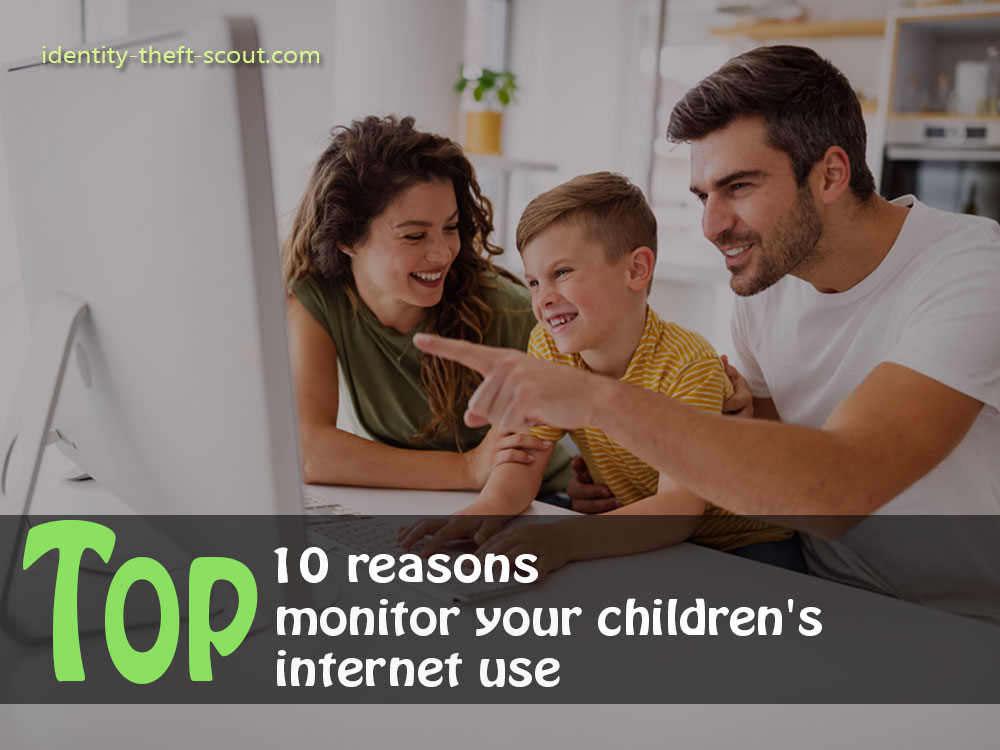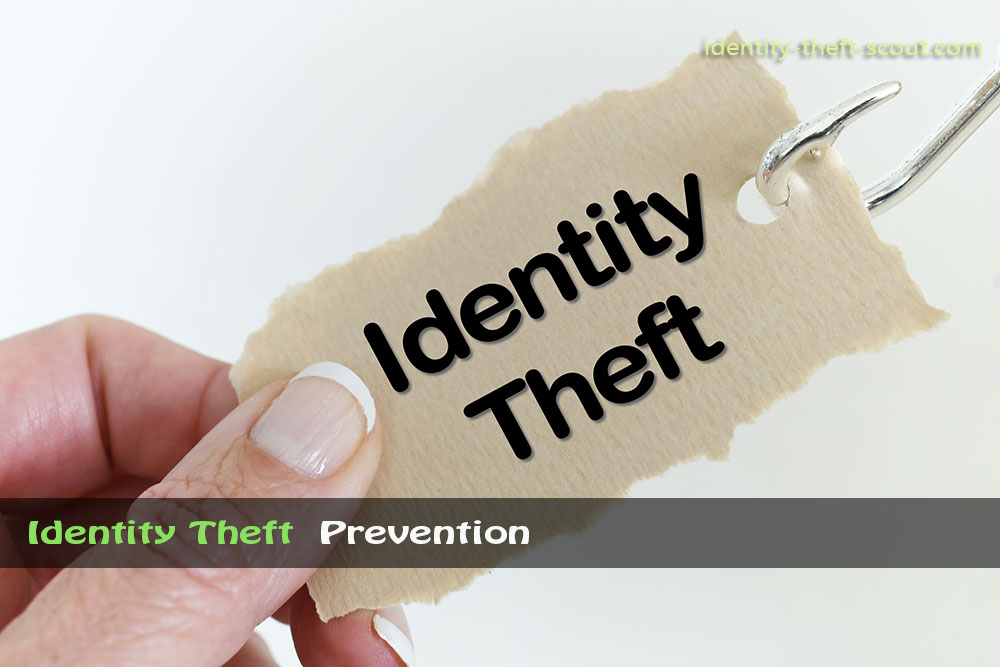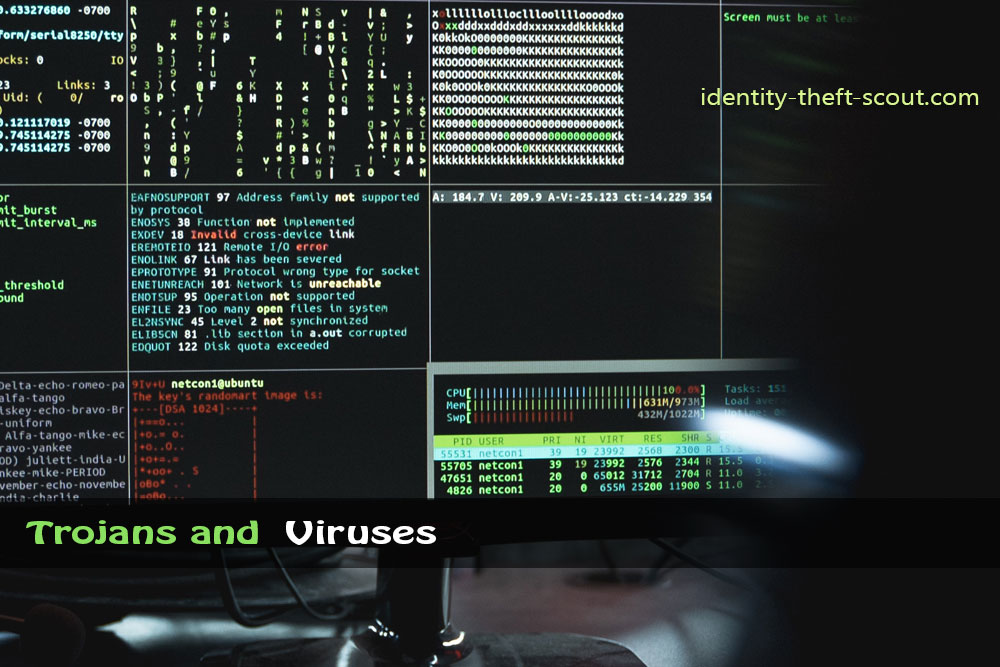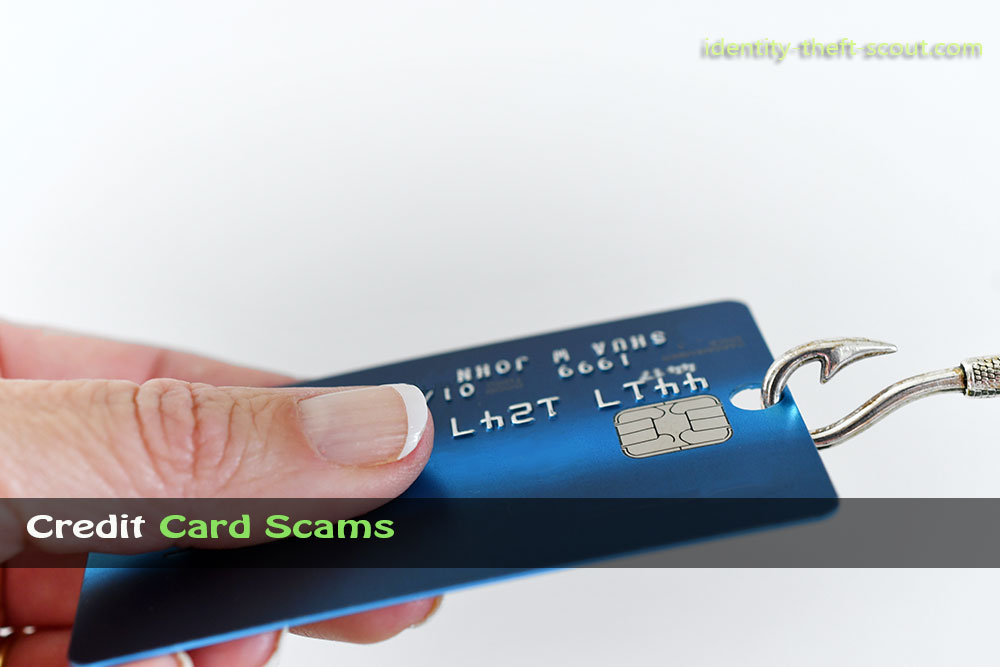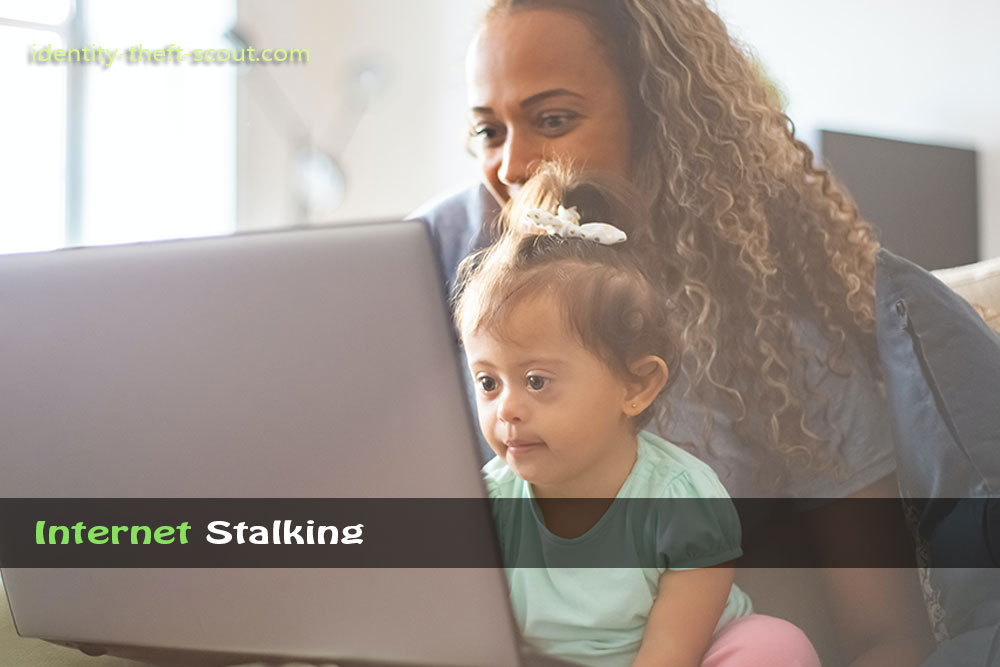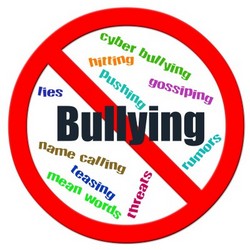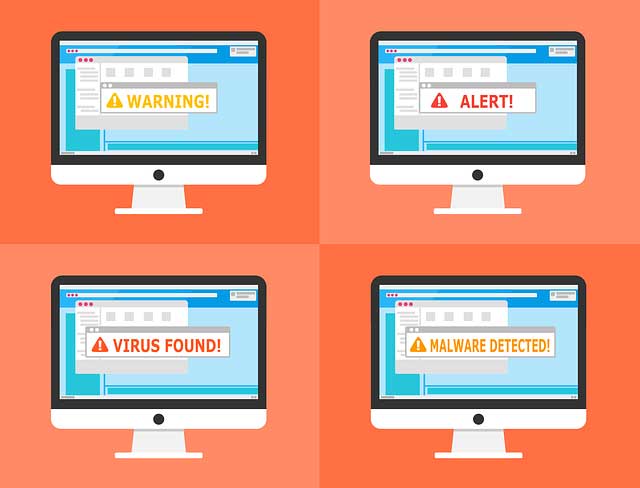The internet offers vast opportunities for learning, entertainment, and socializing. However, this digital landscape also exposes children to a variety of dangers, from cyberbullying to identity theft. As a parent, it’s crucial to take steps to protect your child’s safety online. Below are the top 10 reasons why you should monitor your children’s internet use—and the tools and strategies you can use to ensure their security.
Here are ten reasons why parents need to monitor their children’s internet use and the contact point for international help and resources:
1. Cyber Identity Theft Prevention
With the rise of online scams, identity theft has become a significant risk for both adults and children. Children, often unaware of the dangers, may unknowingly share personal information that can be used for malicious purposes.
How to Prevent Cyber Identity Theft:
- Educate your child about online safety. Ensure they understand that personal details such as their full name, address, or phone number should never be shared online.
- Use strong passwords for all online accounts, and encourage your child to change their passwords regularly.
- Install top-tier security software, like Norton Security, which offers comprehensive protection against online threats, including malware and phishing attacks.
- Consider using a password manager (e.g., LastPass) to store and generate secure passwords for your child’s online accounts.
2. Identity Theft Prevention
Children do not realize how common cyber identity theft on Facebook is if you provide too many personal details about yourself. Parents need to help boost child safety by preventing the teenagers from offering too much personal information in the context of their Facebook profile.
It is important to remember that on social media that not everyone is who they say they are. Be especially careful about giving out your address, phone number, or other personal information. If your children are not sure whether something is safe to share online ask them to check with you first.
3. Trojans and Viruses
One common misconception among parents and teenagers is the difference between viruses and trojans. Both can wreak havoc on your computer, but they are quite different. A virus is a type of malware that can replicate itself and spread to other computers as well as damage the operations of your computer.
Trojans, on the other hand, are specifically designed to exploit vulnerabilities in your system to allow the hacker access to your data. Understanding the difference between these two types of malware is essential for keeping your computer safe.
There is all manner of trojans and viruses a child can accidentally download to a hard drive. Once these viruses and trojans are inside your computer that can initiate all manner of identity theft actions. Your passwords could be compromised; your personal files and folders copied, and your keystrokes can be logged.
https://www.identity-theft-scout.com/password-management-softwareOnce this occurs, such information could be uploaded to another site where identity thieves will effectively compromise it. This is a serious problem, and it is one that also needs to be avoided. Parents need to be aware of the files children are downloading and if they are visiting sites where malicious trojans are known to prey.
4. Credit Card Scams
For older teens, there is always the potential for them to get involved with credit card scams. Child safety online does not stop at age 18. In fact, parents may need to be more diligent in monitoring internet usage to prevent any serious financial disasters the teen may get into.
I was shocked to learn that in 2020, there was a 44% increase in credit card fraud. Because of their financial inexperience this means that there is a greater risk for teenagers to become victims of these scams. So, what can we do to protect them? As a parent, you want to do everything you can to protect your teenager from becoming a victim of credit card scams. Unfortunately, these scams are all too common, and can be very costly for teenagers who fall for them. By following these simple steps, you can help prevent your teenager from becoming a victim:
a) Talk to your teenager about the dangers of credit card scams, and make sure they know how to identify them.
b) Help your teenager create a strong password that is difficult to guess.
c) Monitor their online activity and remind them not to share personal information with anyone they do not know well.
d) Teach them how to check their credit report regularly, so they can catch any suspicious activity early.
If you want to read more about credit card scams we recommend Chauncey Crail’s and Dia Adams’ article in Forbes Advisor entitled 6 Credit card scams and how to avoid them which you can read by clicking here. There is also Melida Helbrock’s article 11 common types of credit card scams and fraud published by ConsumerProtect.com which you can read by clicking here .
5. Examine The Websites That Your Child Is Visiting
Examine the history of the websites that your child is visiting. By taking this action it is possible to stay in the loop as far as knowing what type of websites your child is visiting and how often. Gaining access to this type of information makes it possible for you to discover any problems at their earliest inception and to avoid unpleasant surprises.
There is internet monitoring software that allows you to do this with or without your children’s knowledge. However, this is an issue that every parent must discuss with their own children. However, it is worthy of noting that many employers now monitor the internet usage of employees and the caring role of a parent to their children is far greater.
I am sure most parents have had the “discussion” with their teenagers about responsible internet use. You know, the one where you lay down the law about no inappropriate content and no talking to strangers online. But as we all know, those conversations can be tough – and they usually do not end there.
As our children get older and start using the internet more, it is important to stay involved in their online lives – even if that means monitoring their activity on the dark web. Yes, the dark web. It might sound scary, but it is a vital part of protecting your teenager from harm. So, what is the dark web, and why should you be concerned?
The dark web is a scary place. It is a part of the internet that most people do not even know exists, and it is full of things that can harm you. Drugs, weapons, child pornography – it is all there, hidden away from the regular internet. And because it is hidden, it is a lot harder to track down the people who are doing bad things on the dark web. So, if you are a parent, it is important to learn about the dark web and what your kids could be doing on it. And if you are a teenager, it is important to know what the dark web is so you can stay safe when you are online.
Parents should talk to their teenagers about the dangers of the dark web and make sure they understand not to visit any websites that are only accessible through special software like Tor.
6. Internet Stalking
Internet stalking is a common problem teens and children will deal with. Those with Facebook profiles may very well find them at great risk for stalking. The most common form of stalking would be repeated emails and messages. However, if personal contact information is provided on the Facebook profile, stalking can escalate to phone calls and even visits to one’s residence. To increase child safety online, you need to reduce the potential for online stalking.
One of the disturbing developments in internet stalking is advent of camfecting. But what is it? According to the FBI, camfecting is “the act of taking a compromising photo or video of someone without their knowledge and then posting it online.” So, it is taking a sneaky picture or video of someone in a compromising position and posting it online for all to see.
Unfortunately, this trend is becoming more and more popular with teenagers who are looking to embarrass and humiliate their friends. So, if you are a parent, it is important that you talk to your kids about this dangerous trend and make sure they know how harmful it can be. There is a simple solution to camfecting which is to use a camera cover. This is the best seller on Amazon:
Internet stalking is a form of cyberbullying that can be very dangerous for teenagers. It involves posting or sending mean, hurtful, or threatening messages online about someone. Sometimes, internet stalkers will harass their victims by posting personal information and images on social media or by creating fraudulent profiles. Cyberbullying can lead to depression, anxiety, isolation, and even suicide in some cases. If you are being cyberbullied or know someone who is, it is important to get help right away.
There are lots of resources available to both victims and parents of victims, so do not hesitate to reach out for help. A simple Google search will find help in your area. However, the Cybersmile Foundation has extensive resources to help both victims and parents. The Foundation even has the telephone contact numbers for assistance in a number of countries.Here is the link to the Foundation’s website by clicking here.
7. Chat Rooms
Chat rooms (online communal instant messaging rooms) frequently remain the most potentially dangerous for adults and children. The reason for this is that it is easy to remain anonymous in a chat room. This opens the door to all manner of immoral characters to take advantage of the unsuspecting. Chat rooms are notorious for sexual predators which further adds to the danger of such rooms.
Chat rooms can be a fun, exciting place to meet new people and engage in stimulating conversation. But they can also be dangerous, especially for teenagers. Predators use chat rooms to find victims, and teenagers can easily get caught up in dangerous situations if they are not careful.
As a parent, it is important to be aware of the dangers that lurk online, especially in chat rooms. It can be difficult to keep track of everything your teen is saying and doing online, but with careful monitoring, you can help protect them from harm. By learning how to use the tools available to you, such as chat logs and parental controls, you can reduce the risk of your teenager becoming a victim of cyberbullying or other online predators.
Unlike the olden days when teenagers would sneak out of the house to meet their friends, today’s teenagers are more likely to stay in the comfort of their own home and communicate with them online. While this can be a great way for teens to stay connected with friends, it also comes with some risks.
Whether they are using chat rooms, social media platforms, or gaming servers, there are a number of ways for your teen to communicate with others online. As a parent, it is important that you take steps to protect your child from potential harm. One way to do this is by using monitoring tools that allow you to see what they are doing online. This can help you spot any red flags early on and keep them safe while they are chatting with
8. Cyber Bullying
Cyber bullying is another issue that needs to be addressed when hoping to boost child safety online. Cyber bullying is no different than traditional bullying. It is like cyber stalking except it is often a continuation of bullying that starts in a school environment. The main difference is that it utilizes the communicative nature of the internet to perform the bullying actions. The psychological impact remains the same.
Cyberbullying is when a person uses technology to harass, threaten, or embarrass another person. This type of behaviour can include posting hurtful comments on social media, sending mean text messages, or sharing embarrassing photos online. Cyberbullying can be very harmful and can have long-lasting effects on both the victim and the bully. It is important for parents to talk to their kids about cyberbullying and how to deal with it if it happens. Cyberbullying is a serious problem that needs to be addressed head-on.
Did you know that one in four teens are cyberbullied? As a parent, it is important to be aware of the signs of cyberbullying so that you can help your child if they are being bullied online. Here is a list of some common signs that your child may be a victim of cyberbullying.
- Unexplained absences from school or reluctance to go to school
- Decreased academic performance or drastic changes in grades
- Avoiding social media or other technology platforms altogether
- Changes in personality, such as becoming more withdrawn, depressed, or angry
- Physical symptoms such as headaches, stomach aches, trouble sleeping or eating, and feeling overwhelmed or stressed out constantly.
The first point of contact is often best to be your child’s school administration. A simple Google search will find other help in your area. However, the international Cybersmile Foundation has extensive resources to help both victims and parents.The Foundation even has the telephone contact numbers for assistance in a number of countries. Here is the link to the Foundation’s website by clicking here.
9. Cyber Threats
It is never a good thing from a social perspective for a child to spend too much time online. Parents need to monitor their child’s online activities if for no reason other than to prevent the child from becoming limited in his/her social interactions.
Did you know that suicide is now the third leading cause of death for American teenagers? It is an alarming statistic, and one that is particularly worrying when you consider the role cyberbullying can play in teenage suicides. As a parent, it is important to be aware of the signs that your teenager might be struggling, so you can provide them with the support they need.
However, cyber threats are very closely aligned to cyber stalking and bullying, but it is the culmination of cyber stalking and bullying that combine to produce fear and the dread of threats that leads to mental breakdowns and suicides of teenagers. The question for every parent to ask themselves is “would I know if my teenager was being stalked or bullied over the internet?”
There are too many parents of teenagers who suffer a mental breakdown and are distressed when they discover that their teenager was receiving threats over the internet, but they did not know about it because they did not want to interfere.
10. Cybersmile Foundation
The Cybersmile Foundation is an international non-profit organization that was founded in 2010 with the goal of helping to address the growing problem of cyberbullying. The foundation provides support and education for victims of cyberbullying, as well as their families and friends, and offers advice and resources to help anyone who are dealing with this issue.
They also collaborate with schools, social media platforms, and law enforcement agencies to create a safe online environment for everyone. If you or someone you know is being bullied online, or if you want to learn more about how to protect yourself from cyberbullying, the Cybersmile Foundation can help. Visit their website today for more information.
Disclosure:
This article mentions a number of organizations that we have have researched and approved to have affiliate arrangements with. This means that they may pay us a small commission for referring readers to their website. However, it does not mean that you pay more for for their products or services.

